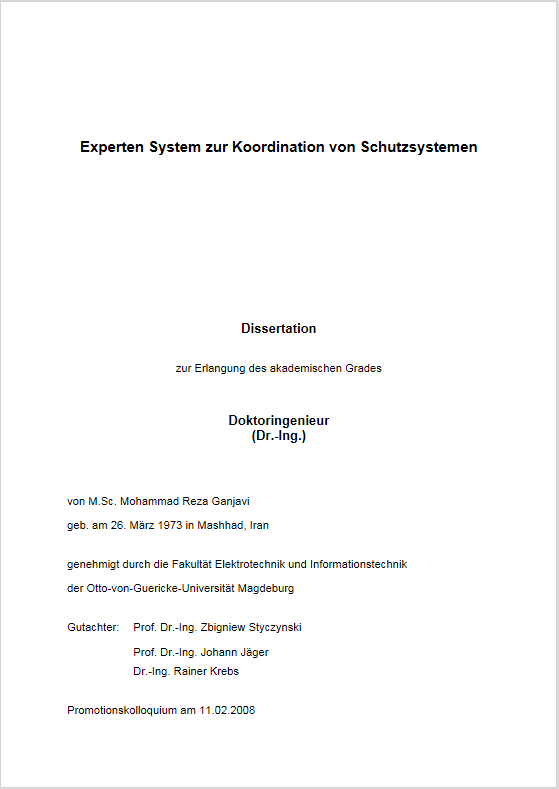Vol. 25 (2008): Ganjavi, Mohammad Reza: Experten System zur Koordination von Schutzsystemen

The scientific thesis of this dissertation is to move that implementing an Expert Systemfor protection system coordination knowledge domain is possible. This dissertation focuses on proposing, coordinating and optimizing protection devices setting values. This work has two main goals: 1- Expert engineers knowledge acquisition in protection system coordination domain. 2- Selecting a proper Expert System architecture and implementing it as a pilot system to optimize protection system coordination. We have collected the knowledge of experienced protection engineers which provides a coordinated protection settings for the protection of equipments (Bus, Generator, Motor, Transformer, Reactor and Line) and power systems. Experienced engineers apply their know-how step-by-step to carry out the protection coordination task. The Expert System imitates this behavior of expert engineers in a web-based application. This work has decomposed the protection knowledge of experts into smaller elements: the setting rules. Each setting rule is valid for definite conditions. Therefore, a sequence of dialogs is asked from the Expert System user to fulfill the required validity condition of each rule. Each dialog contains the following parts: Question, Answer, Criteria, Recommendation and Optimization. The sequence of which dialogs are asked as well as the question and the recommendation part of each dialog designed are based on the know-how knowledge of the expert engineers. Each dialog recommends either a setting value or a setting criterion for each parameter of each protection function in each protection device. The generated setting criteria are optimized to provide the shortest fault clearing time or the longest equipment or system operation time. In each dialog, the Expert System user may accept the proposed recommendation or dictate his proposed value.
ISBN: 978-3-940961-15-0
DOI: https://doi.org/10.24352/UB.OVGU-2021-067

